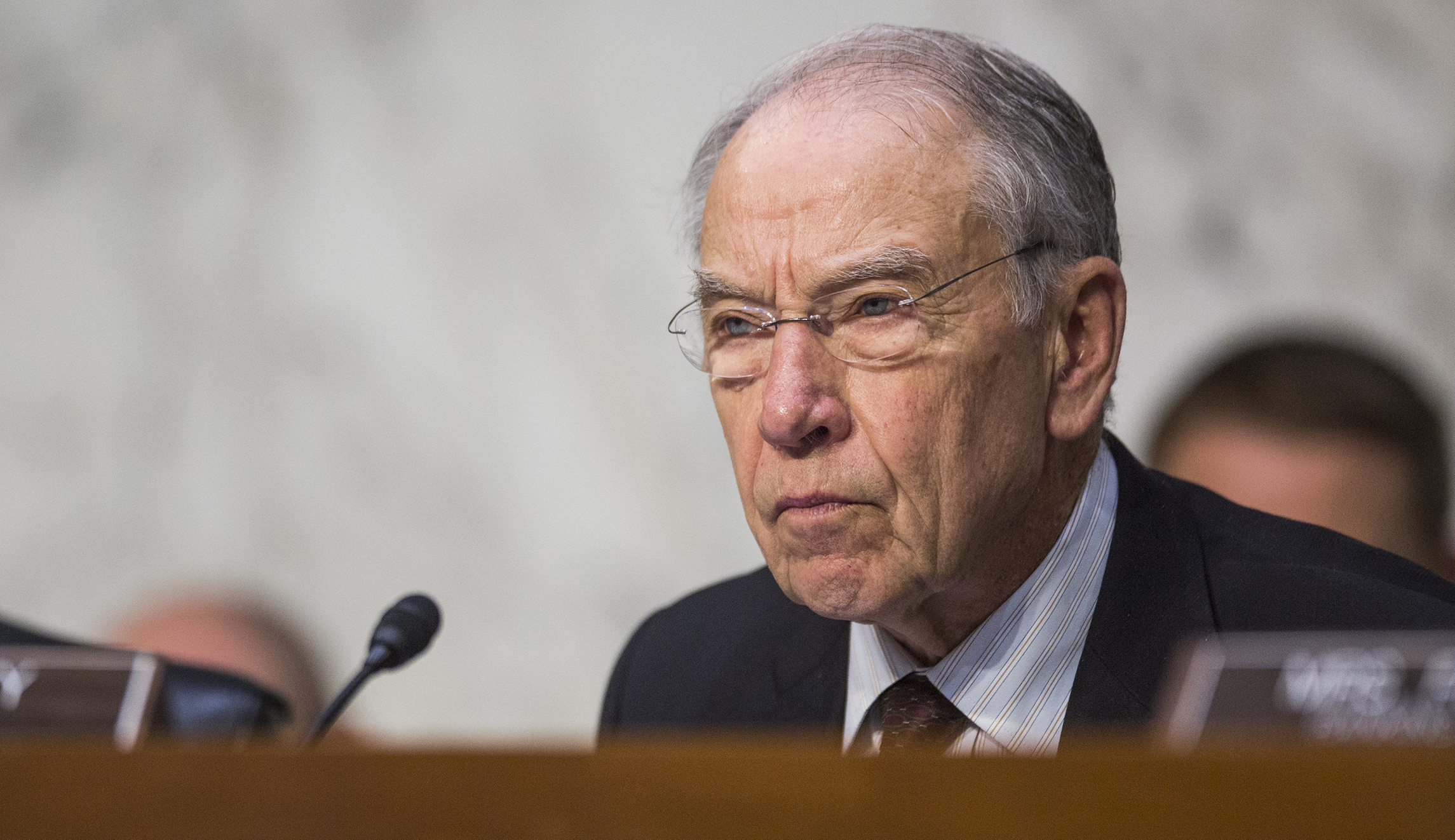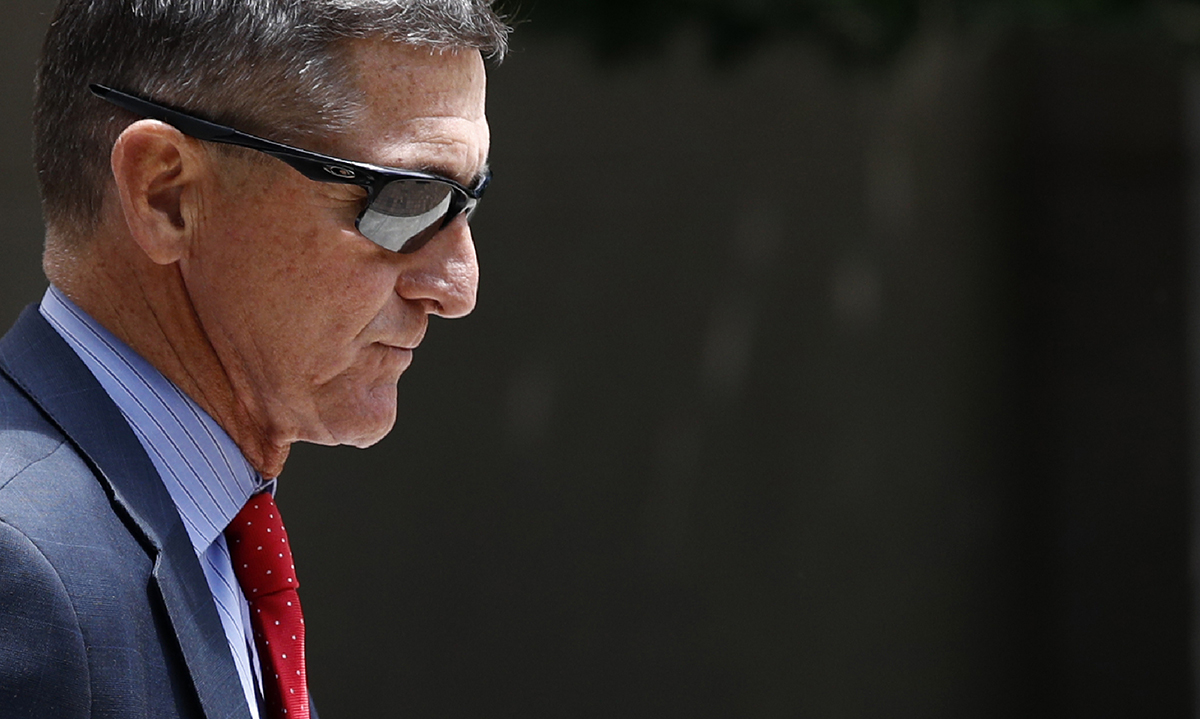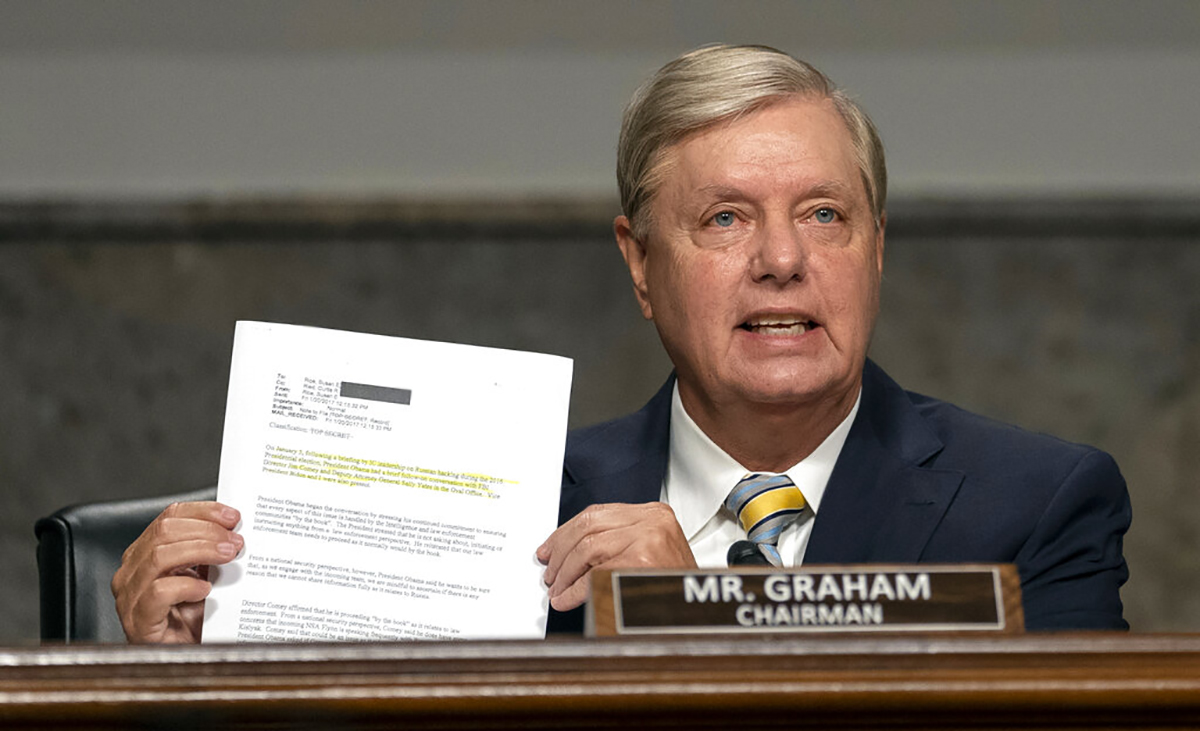Senate investigators interviewed an FBI official steeped in the inquiry into ties between President Trump’s 2016 campaign and Russia that Republicans have said was a corrupt mess created by the Obama administration.
FBI agent Joseph Pientka, who led the portion of the Crossfire Hurricane investigation focused on retired Lt. Gen. Michael Flynn, was interviewed for “multiple hours” in a closed setting by members of the Senate Judiciary Committee and the Senate Oversight Committee, sources first told Catherine Herridge, CBS News’s senior investigative correspondent.
Pientka’s testimony has been sought since 2018, when Iowa Sen. Chuck Grassley was head of the judiciary panel, but investigators’ requests had been denied up until now. The exact timing of the interview was not shared, but word of it taking place comes less than 70 days before Election Day.
“While we have no comment on particular witnesses, the FBI has been responsive to the committee’s requests and will continue to be so,” an FBI spokesman said.
A Senate Judiciary Committee Republican aide told the Washington Examiner that Grassley was not invited to the questioning of Pientka, but Republican Homeland Security Chairman Ron Johnson and Democratic ranking member Sen. Gary Peters reportedly were. Senate Judiciary Committee Chairman Lindsey Graham’s office did not respond to a request for comment. Johnson’s office also did not respond.
“We weren’t aware that it was happening, and we learned about it after the fact,” the GOP aide said. “We weren’t in the room, we don’t know how long it lasted, and we don’t know what topics were covered. At the end of the day, we just want to make sure that the issues that we need clarity on were discussed in that interview. It would’ve been a lot easier if we were in the room.”
The aide added: “We know more about Pientka now than in 2018, and we probably have even more questions now about his role, given the broader understanding of what he was up to.”

Democrats have criticized the Republican-led investigations, claiming they risk inviting Russian disinformation into United States politics ahead of the 2020 election, which Republicans deny. Johnson said Democrats have “decided to weaponize a false ‘Russian disinformation’ narrative as a tool for attacking their political opponents” and that “it is Democrats who have sought out and disseminated Russian disinformation” through promoting British ex-spy Christopher Steele’s now-discredited dossier.
Graham is leading an investigation into the FBI’s inquiry into ties between the Trump campaign and Russia, code-named Crossfire Hurricane, alongside those being spearheaded by Johnson and Grassley, who is now the chairman of the Senate Finance Committee.
Graham has made several document disclosures in the past few weeks, and his panel has interviewed some former Justice Department officials who oversaw the FBI’s Russia investigation, paving the way for what he says should be an effort by Attorney General William Barr and FBI Director Christopher Wray to “repair” the damage done to the federal law enforcement apparatus. The South Carolina Republican is now advising former FBI Director James Comey to prepare for testimony sometime in the latter half of September.
Pientka accompanied then-FBI Special Agent Peter Strzok to interview Flynn in January 2017 at the White House during the presidential transition period, shortly before he became Trump’s national security adviser. Flynn only served in that role for a few weeks until word got out he allegedly misled White House officials about conversations he had with a Russian envoy.
FBI counterintelligence official William Priestap’s notes from the day of the Strzok-Pientka interview include: “What is our goal? Truth/Admission or to get him to lie, so we can prosecute him or get him fired?”

Flynn pleaded guilty in December 2017 to lying to FBI investigators about his December 2016 conversations with a Russian envoy. After changing legal teams, Flynn claimed this year that he was set up by the bureau and moved to withdraw his guilty plea. The Justice Department has since moved to drop the case, and the matter is still playing out in the courts.
Pientka also led the August 2016 counterintelligence briefing the bureau gave to candidate Trump and his national security team, including Flynn, and former New Jersey Gov. Chris Christie, which has since been revealed to have been used as a pretext to gather investigative evidence on the Trump campaign as they looked for evidence of Russian government influence. Pientka never warned the Trump team that the FBI believed the Russian government was attempting to influence his campaign.
Pientka filed a seven-page electronic communication on Aug. 30, 2016, a week after the briefing at the FBI’s New York field office, in which he wrote that during the part of the briefing given by an official with the Office of the Director of National Intelligence, he “actively listened for topics or questions regarding” Russia. The electronic communication was approved by Strzok and Kevin Clinesmith, the now-former FBI lawyer whom the Justice Department inspector general found had falsified a document related to the wiretapping of onetime Trump campaign associate Carter Page. Clinesmith agreed last week to a plea deal in U.S. Attorney John Durham’s criminal inquiry into the Russia investigation.

Justice Department Inspector General Michael Horowitz wrapped up his own investigation of the FBI’s Russia inquiry last year.
“We concluded that the FBI’s use of this briefing for investigative reasons could potentially interfere with the expectation of trust and good faith among participants in strategic intelligence briefings, thereby frustrating their purpose,” he wrote in a report released in December.
In testimony that same month, the independent watchdog said the bureau used the intelligence briefing ostensibly about guarding against foreign interference to gather evidence against Trump and Flynn. Horowitz said former Secretary of State Hillary Clinton’s campaign got an identical briefing but that hers was not used by the FBI to collect information on the candidate or her team as they were not the subject of a counterintelligence investigation.
Graham has since revealed that FBI leadership stopped a field office’s pursuit of a Foreign Intelligence Surveillance Act warrant in connection to a foreign scheme to funnel money into and influence Clinton’s campaign, after which the FBI warned Clinton’s team of the threat “so she could fix it.”
